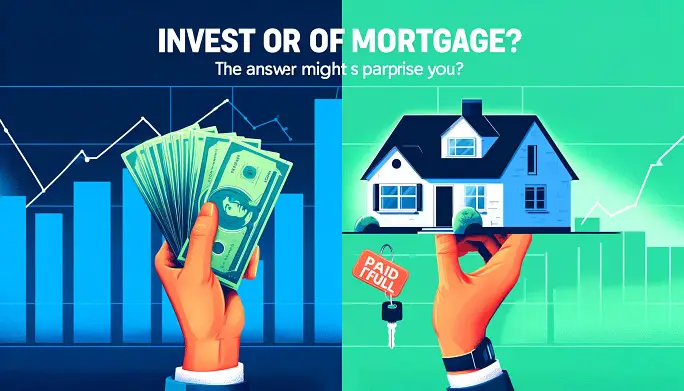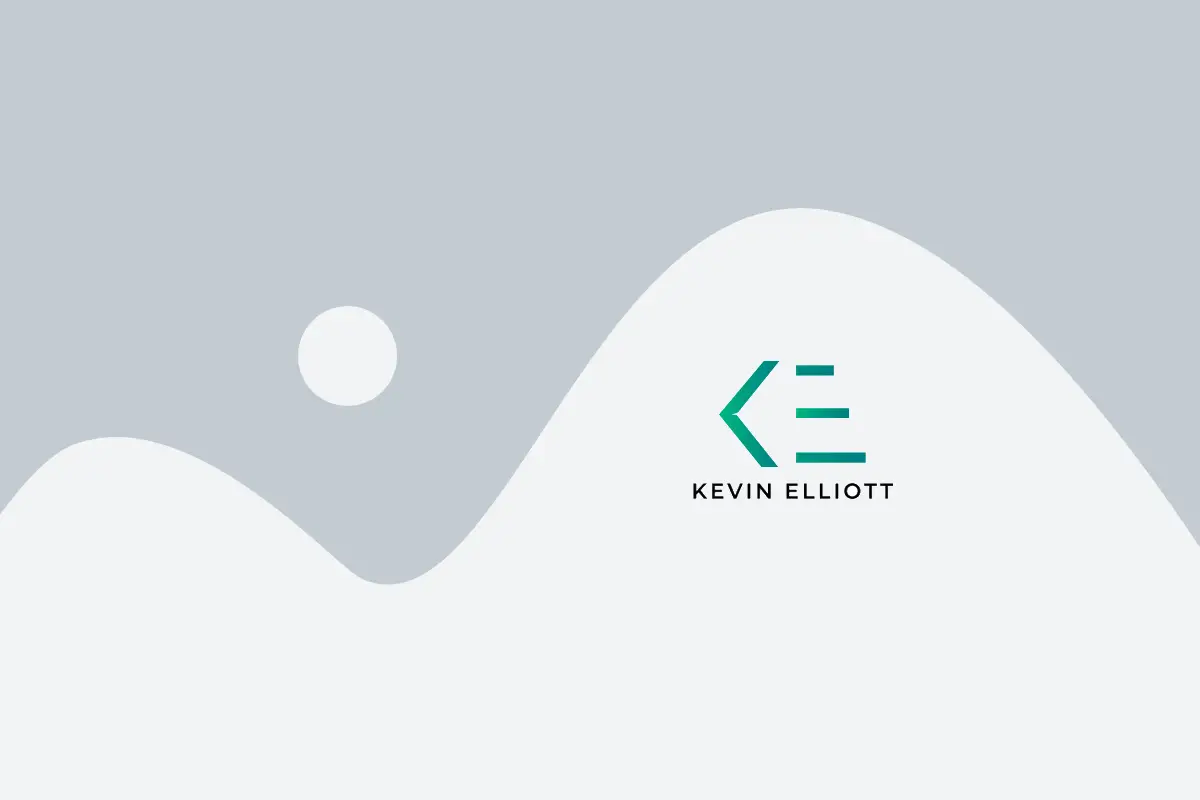If you had extra cash, would you put it toward your mortgage for peace of mind, or invest it for long-term growth? It’s not a simple yes or no—it’s a strategic decision that involves financial math, risk tolerance, and personal goals. And here’s the kicker: what’s right for one person may not be right for another.
In this guide, we’ll break it all down:
- How mortgage amortization works and why timing matters
- Key financial factors like interest rates, inflation, and investment returns
- A blended strategy that could give you the best of both worlds
By the end, you’ll have a clear strategy to make the best decision for your financial future—and maybe even sleep better at night.
Understanding Mortgage Amortization
Before deciding whether to invest or pay off your mortgage, it’s crucial to understand how mortgage payments work. Most loans follow an amortization schedule, meaning:
- In the early years, the majority of your monthly payment goes toward interest, not principal.
- As time progresses, more of your payment goes toward the principal balance.
Example: The True Cost of a Mortgage
Imagine you take out a €400,000 mortgage at 5% interest for 30 years. By the time you’re done paying, the total amount repaid is €772,920!
Breakdown:
- €400,000 = Original loan amount (principal)
- €372,920 = Interest paid to the bank
That’s the power—and cost—of compounding interest working against you. However, making extra payments early reduces the principal balance, meaning you pay less interest over the life of the loan.
Should You Pay Extra on Your Mortgage?
Let’s say you add an extra €500 to your monthly mortgage payment in the first five years. This can:
- Reduce your total interest paid
- Shorten the loan term by several years
- Free up cash flow sooner
But before you rush to pay down your mortgage, there are other factors to consider.
Key Factors to Consider Before Paying Off Your Mortgage
1. Mortgage Interest Rate
Your mortgage rate is a major factor in whether paying it off early makes sense.
- If your rate is low (3% or less): It may be better to invest. The stock market has historically returned 7–10% annually, meaning even after taxes, you could net 6–8%—a much better return than the guaranteed savings from a low-rate mortgage.
- If your rate is high (6% or more): Paying off your mortgage is like earning a guaranteed return. In this case, reducing debt makes financial sense.
Example:
If you have a €400,000 mortgage at 3% interest, paying it down gives you a 3% guaranteed return. But if you invest the same amount and earn 8% annually, you’re effectively making an additional 5% per year—though with more risk.
2. Volatility in Interest Rates & Investment Returns
Market conditions fluctuate. In the 1980s, mortgage rates exceeded 10%, making early repayment a no-brainer. Today’s rates are lower, but stock market returns aren’t guaranteed.
Key takeaway: If you’re comfortable with market risk, investing could yield higher returns. If you prefer security, paying off debt may be a safer bet.
3. Inflation and the Real Cost of Debt
Many people forget that inflation reduces the real value of debt over time.
Example: If inflation averages 3% per year, a €400,000 mortgage today will feel like €220,000 in today’s money after 20 years.
What this means:
Holding onto a low, fixed-rate mortgage during times of inflation can work in your favor. Your debt becomes cheaper over time while your assets (like your home or investments) appreciate.
4. Prepayment Penalties
Some lenders charge penalties for making extra payments or paying off your mortgage early.
- Check your mortgage terms—some loans allow extra payments up to 10% per year without penalties.
- If your lender charges a 1% penalty on a €400,000 balance, that’s €4,000 upfront—potentially offsetting your savings.
5. Investment Returns (The Hurdle Rate)
If you’re considering investing, your returns need to exceed your mortgage rate after taxes and fees.
Example:
- If your mortgage rate is 3%, you’d need an investment return of at least 4–5% pre-tax to justify investing.
- Taxes and fees reduce your net return, so be realistic when comparing options.
6. Tax-Efficient Savings Opportunities
One benefit of paying off your mortgage is freeing up cash flow—which can be redirected into tax-advantaged accounts like pensions or retirement savings.
Example:
If your mortgage payment is €2,150/month, and paying extra reduces it to €1,650/month, you free up €500 per month.
If you invest that €500 into a pension with a 40% tax break:
- Every €500 contribution only costs you €300 out of pocket
- Over 20 years at a 7% annual return, your investment could grow to €260,000—a significant boost to your retirement savings.
The Best of Both Worlds: The Blended Approach
You don’t have to choose one strategy. A blended approach offers balance between security and growth.
How It Works?
Let’s say you have €100,000 available. Instead of fully paying off your mortgage or fully investing, you:
- Use €50,000 to pay down your mortgage → lower payments + interest savings
- Invest €50,000 in a diversified portfolio → long-term growth potential
Why this works?
- Reduces financial risk while still taking advantage of market returns
- Keeps cash flow flexible for future opportunities
- Helps balance both short-term security and long-term wealth
Beyond the Numbers: Emotional & Lifestyle Considerations
Financial decisions aren’t just about numbers. Here are three key lifestyle factors to consider:
1. Peace of Mind
Imagine waking up knowing your home is fully paid off. For many, this freedom from debt is priceless—even if investing could generate higher returns.
2. Risk Tolerance
Investing has ups and downs. If a market crash right before retirement would stress you out, focusing on debt repayment might be the safer bet.
3. Your Bigger Financial Picture
Are you already investing in pensions, stocks, or property? If so, reducing debt may bring more diversification to your wealth-building strategy.
Final Thoughts: What’s the Right Move for You?
- If your mortgage rate is low: Investing often makes more sense.
- If your mortgage rate is high: Paying it off early could be smarter.
- A blended approach: Offers flexibility by balancing security and growth.
Now it’s your turn!
Are you team “pay off the mortgage“, or do you prefer to invest for growth? Let me know in the comments—I’d love to hear your thoughts!
And if you found this guide helpful, share it with someone facing the same decision. Making smart financial moves today can set you up for a wealthier, more secure future!
VIDEO EXPLANATION
If you found this blog post helpful, feel free to share it with other or subscribe for more tips on managing your finances.
I empower people to take full control of their finances, guiding them step by step towards building, growing, and preserving true wealth.

About the Author:
Kevin Elliott is a Financial Planner, and quantitative finance expert with over 18 years of experience in global financial markets. He has worked with top-tier institutions such as Bank of New York, Bridgewater Associates, RBS, CIBC, UniCredit, and Bank of America, where he served as Director in New York.
Holding a BSc in Economics and Finance and a Graduate Diploma in Financial Planning from University College Dublin, along with an MBA from Imperial College London, Kevin combines deep technical expertise with a passion for personal finance and wealth building.
Kevin is committed to helping individuals take control of their finances, invest wisely, and build long-term wealth. With a knack for simplifying complex financial concepts, he provides actionable insights on investing, retirement planning, and financial independence.
Whether you’re a beginner looking to start your wealth journey or a seasoned investor fine-tuning your strategy, Kevin offers practical guidance, expert analysis, and proven strategies to help you achieve financial freedom and security.
Stay connected for the latest insights on smart investing, wealth management, and financial success.



